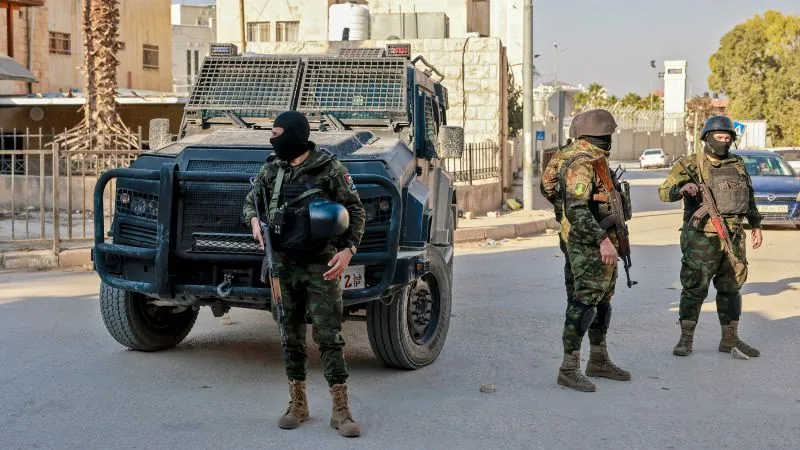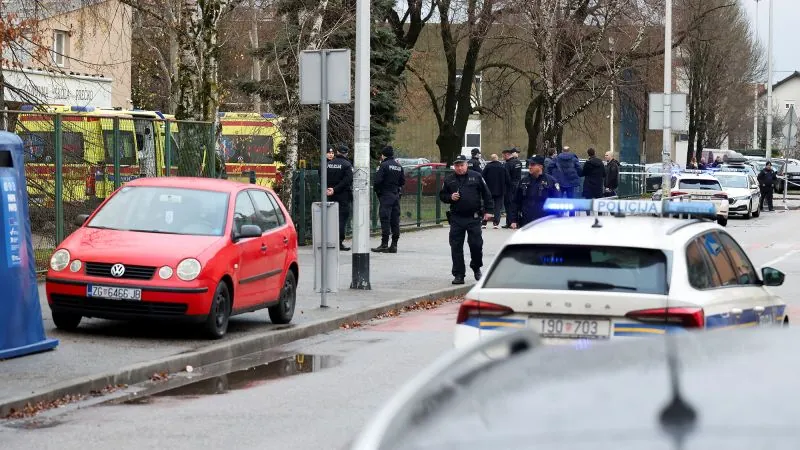
Escalating Tensions: Militants Clash with Palestinian Authority in Jenin Refugee Camp
2024-12-23
Author: Jessica Wong
For over a week, the Jenin refugee camp in the occupied West Bank has transformed into a battlefield, echoing with heavy gunfire and explosions as masked militants and Palestinian Authority (PA) security forces engage in violent confrontations. This unsettling conflict, however, does not involve Israeli military actions; instead, it marks a significant power struggle among Palestinians themselves.
The Jenin camp, established for those displaced during the founding of Israel in 1948, is a densely populated area home to around 25,000 residents. The Palestinian Authority, supported by Western nations, has initiated its most extensive security operation in years—aiming to expel militant factions primarily aligned with Hamas. These groups vehemently accuse the PA of colluding with Israel and failing to represent Palestinian interests.
Despite the PA's claims of significant advancements, true control over the camp remains elusive. Armed militants, including factions like the Al Aqsa Martyrs’ Brigade and Palestinian Islamic Jihad, assert their dominance, challenging the PA's authority. In recent clashes, both sides have suffered casualties, further exacerbating tensions and leaving local civilians caught in the crossfire. Tragically, among the dead are young teens and PA personnel.
The escalating violence in Jenin reflects a larger narrative of desperation and unrest within Palestinian society. Many residents, like 27-year-old fighter Assad Aqel, voice grievances against the PA, claiming that security operations have exacerbated their suffering and left them vulnerable to Israeli military aggression. Complaints of disrupted access to essential services such as water, electricity, and medical care have surged, with reports indicating garbage piling up in the streets as tensions reach a boiling point.
The situation in the Jenin camp is seen as a pivotal test for the Palestinian Authority. If it cannot assert control here, the prospects for its future role in the Palestinian territories—including any hope for governance in post-war Gaza—look dim. Militants view this resistance as a testament to their commitment to struggle against perceived oppression, and local leaders express frustration that the PA does not adequately protect their community.
Compounding the situation is the reported influx of Iranian support for militant factions, heightening concerns for Israel and its allies. The PA accuses Iran of financially backing the militants to incite chaos, weaken its governance, and further entrench conflict in the region.
Amid political complexities and military strategies, the plight of everyday Palestinian citizens remains a tragic reality. With security forces blocking access to the camp, even humanitarian aid has been impeded. The United Nations Relief and Works Agency (UNRWA) has temporarily suspended services, further deepening the humanitarian crisis in Jenin.
Residents such as 74-year-old Umm Hani lament the escalating violence from all parties and express fear for their lives in an environment where gunfire is rampant. Calls for dialogue and an urgent reevaluation of strategies from both the PA and militant groups are growing, but amidst rampant mistrust, achieving peace remains an uphill battle.
As the world watches, the Jenin refugee camp stands as a stark symbol of the ongoing struggle for control, security, and basic human dignity within the Palestinian territories. The current standoff serves as a reminder that without a clear path toward negotiation and understanding, the cycle of violence is far from over.





 Brasil (PT)
Brasil (PT)
 Canada (EN)
Canada (EN)
 Chile (ES)
Chile (ES)
 España (ES)
España (ES)
 France (FR)
France (FR)
 Hong Kong (EN)
Hong Kong (EN)
 Italia (IT)
Italia (IT)
 日本 (JA)
日本 (JA)
 Magyarország (HU)
Magyarország (HU)
 Norge (NO)
Norge (NO)
 Polska (PL)
Polska (PL)
 Schweiz (DE)
Schweiz (DE)
 Singapore (EN)
Singapore (EN)
 Sverige (SV)
Sverige (SV)
 Suomi (FI)
Suomi (FI)
 Türkiye (TR)
Türkiye (TR)